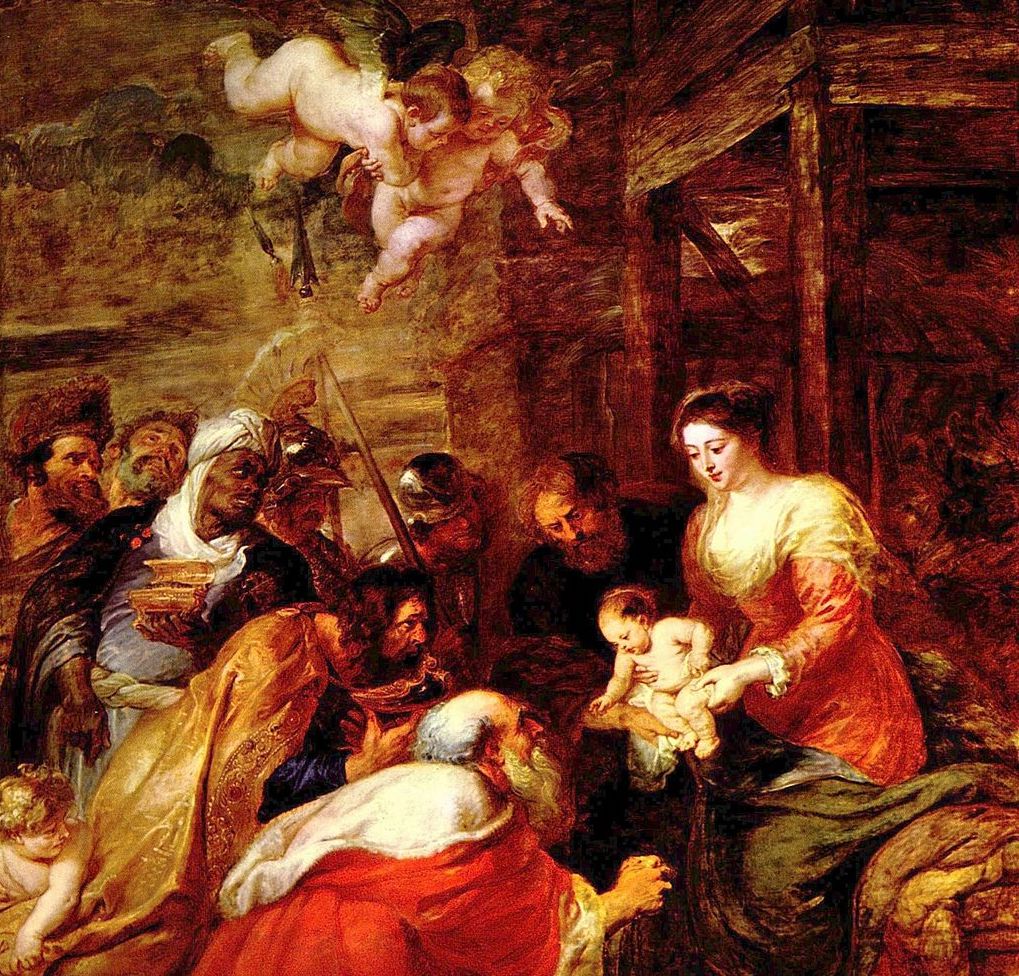
December 21, 2023

Adoration of the Magi, Rubens, 1634
My, my, how the years pass by. I’ve lost count of the times I’ve written a Christmas piece for Takimag, but the years have passed in an eye blink. Recently I asked myself, why do bad things happen to good people? (Well, not very good people, but well-intentioned.) This question has occupied thinkers throughout the ages. People who do not believe in a good God should logically have no problem with the existence of evil. In my case, I very much believe in God, and it has served me well during a very long and very happy life.
Recently, however, something bad happened to me. A totally false accusation and a staged entrapment by someone whom I hardly know and have never physically touched was passed off as truth in a Swiss village court of law. Then something extraordinary took place. My wife, Alexandra, a devout Catholic whom I married 52 years ago when she was young and didn’t know what she was doing, quoted the Bible and told me, “Blessed are they which are persecuted for righteousness’ sake.” She also quoted from the Book of Job, in the Old Testament. God must have had a reason to punish Job so cruelly, yet poor old Job was innocent. God did it to illustrate his unquestionable power and that his ways are never understood by mortals. “We have two beautiful children and four even more beautiful grandchildren,” she said. “You’re healthy and well-off, what else do you want?”
She was hard to argue with—she was not born a Serene Highness for nothing—and she has persuaded me not to hate or ask why it happened to me. Mind you, I’m appealing, but it takes a long time. Having said that, now let’s get back to Christmas: We live in a world where people exaggerate the value of entertainers and professional athletes while neglecting spiritual heroes. Sometimes I think anti-Christian forces take Christ more seriously than most nominal Christians do. The Western world, including many of those who consider themselves Christians, has turned Christmas into a bland holiday of mere niceness. Ironically, the natural reaction to Christ is to reject him, and he said so himself. He predicted his own death and told his followers they must expect persecution too. He performed miracles of love and mercy but also warned of eternal damnation, insulted the Pharisees, and rebuked people who adored him in words that can make us cringe.
He was no con man. He accompanied his words with miracles, and those against him disputed his words rather than the miracles. His modern enemies don’t try to dispute that miracles happened, they simply assume he never performed them. The fact that large crowds witnessed the blind who saw, the deaf who heard, and the cripples who walked convinces those of us who believe in his truth.
And yet there is a growing army of unbelievers, who like skeptics for centuries say that this is all kids’ stuff, and some go further: A benevolent God or Son of God would never allow things like war and the death of millions to happen. How could a loving God permit such gratuitous ruin? Surely any rational human being is bound to think that natural disasters that kill innocents are proof of the nonexistence of a good God. And yet, the miracle of birth alone proves otherwise. As does the satisfaction derived from doing something good for others, a very rare thing nowadays. Mindless violence (with women and children being killed by the thousands in Gaza) is now part of Western culture, as are anti-Christian beliefs.
Crusading atheism is now the banner many so-called thinking people march under. It separates the men from foolish boys and so on. Articulate secularists, however, have a problem: The Enlightenment story does not add up. As people opened their eyes, the superstition of religion gave way to science; parochialism and tribal allegiance were replaced by cosmopolitanism and individualism. Top-down command systems were out, separation of church and state were in. And what did that bring us? Millions and millions of dead from wars, especially during the 20th century, and the big causes of the wars and destruction had little to do with religion but a lot with secularism.
Science is a great blessing but has not managed to replace religion where spirituality is concerned, and the great scientists are among the greatest of believers. Many churches are empty in Britain because of the secular teachings of the Church of England. Try to get into a Czech church on Christmas Eve, or a Greek village one. From Plato and Aristotle to Darwin and Einstein, God was a reality. The West and America in particular are suffering from a culture of self-absorption and self-promotion. The person who lied so egregiously against me is one embittered by anonymity, as if that were a crime.
And now it’s time. I want to wish every Takimag reader a very happy Christmas, and a happier New Year.